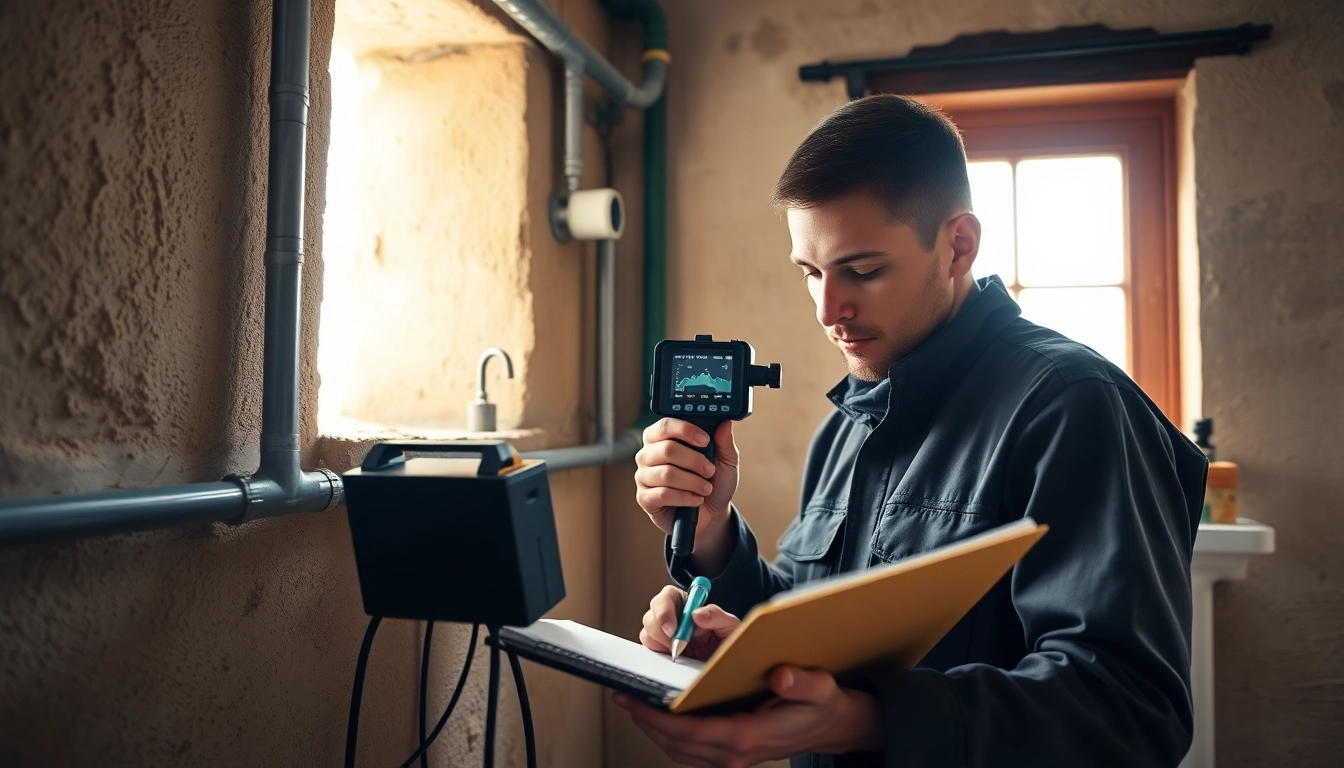Understanding Leak Detection Cornwall
In the picturesque landscape of Cornwall, water plays a vital role not only in the beauty of its shores but also in the daily lives of its residents. However, with the charm of these surroundings comes the persistent concern of water leaks. Timely and effective Leak Detection Cornwall is crucial to maintaining the integrity of properties, ensuring safety, and conserving water resources. Here, we delve into the critical aspects of leak detection, its significance, types, and more.
What is Leak Detection?
Leak detection refers to the process of identifying and locating leaks within various systems, primarily in plumbing and water distribution networks. It involves using various tools and methodologies to pinpoint areas of water loss, whether they are visible or concealed. The importance of this process spans many sectors, including residential buildings, commercial properties, and industrial facilities. Effective leak detection not only saves water but also reduces damage and maintenance costs associated with leak repair.
Importance of Leak Detection in Cornwall
In Cornwall, with its unique climate and varying soil conditions, the implications of water leaks can be particularly severe. The region’s prevalence of older infrastructure increases the likelihood of systemic failures, making regular leak detection an absolute necessity. Here are some key reasons why leak detection is paramount in Cornwall:
- Environmental Conservation: With water being a limited resource, detecting and repairing leaks ensures that this vital commodity is not wasted.
- Cost Savings: Identifying leaks early can help residents avoid substantial water bills resulting from ongoing leaks.
- Property Protection: Undetected leaks can cause mold, structural damage, and other significant issues that compromise the safety of a building.
- Preserving Infrastructure: Regular leak detection helps extend the lifespan of plumbing systems and facilities.
Common Types of Water Leaks
There are several types of water leaks that property owners in Cornwall might encounter:
- Pipe Leaks: These occur in the plumbing system and can happen due to corrosion, joint failure, or pressure changes.
- Slab Leaks: Common in concrete foundation homes, these leaks happen beneath the foundation and can prove challenging to detect until significant damage occurs.
- Roof Leaks: Often a result of heavy rainfall and poor maintenance, roof leaks can lead to interior damage and mold.
- Drainage Leaks: Associated with sewer lines, these leaks can cause nasty odors and soil contamination.
Tools and Techniques for Leak Detection Cornwall
Essential Equipment for Professionals
Professionals in leak detection utilize a variety of specialized tools and equipment to accurately identify and locate leaks. The choice of equipment often depends on factors such as the type of leak, its location, and the construction materials involved. Some of the essential tools include:
- Acoustic Detectors: These devices can pick up sounds made by leaks in pipes, allowing technicians to identify the source quickly.
- Thermal Imaging Cameras: These cameras help detect temperature variations and moisture presence often indicative of leaks.
- Moisture Meters: Used to measure the moisture content in walls, ceilings, and floors, they assist in finding hidden leaks.
- Video Inspection Equipment: This allows a visual inspection of pipe interiors, helping to locate leaks that are otherwise hidden from view.
Advanced Technologies Used in the Field
With advancements in technology, numerous sophisticated methods improve the effectiveness of leak detection, such as:
- Smart Leak Detection Systems: These systems use Internet of Things (IoT) technology to continuously monitor water systems for irregularities, alerting owners to potential leaks.
- Tracer Gas Detection: This technique involves inserting hydrogen or helium into the pipe system under pressure and using a gas detector to identify leaks.
Manual vs. Automated Leak Detection Methods
There are two primary approaches to leak detection: manual and automated. Manual methods involve traditional techniques such as listening for sounds of leaks or conducting physical inspections. This approach requires skilled technicians and can be time-consuming.
On the other hand, automated methods leverage technology for continuous monitoring. These systems can provide real-time data, making them efficient for large properties or complex systems. Businesses must weigh the investment in technology against the needs of the property to choose the right option.
Common Challenges in Leak Detection Cornwall
Identifying Hidden Leaks
One of the most significant challenges in leak detection is identifying hidden leaks, which are often difficult to locate until they cause considerable damage. These leaks can be located behind walls, beneath floors, or even underground. Using advanced detection tools can minimize this challenge, but skilled technicians are essential to interpret the data accurately.
Dealing with Old Infrastructure
Cornwall is home to many older properties with outdated plumbing systems. These allows leaks to occur more frequently due to wear and tear. Upgrading old systems can be expensive, making regular maintenance and monitoring essential to extend their lifespan.
Understanding Local Environmental Factors
The geographical and climatic characteristics of Cornwall, such as its propensity for heavy rainfall and varied soil types, can complicate leak detection efforts. For example, certain soils may retain water longer, leading to misleading signs of leaks. Understanding these local factors is critical in developing effective leak detection strategies.
Implementing Best Practices for Leak Detection Cornwall
Regular Maintenance Tips
Preventive maintenance is vital for reducing the risk of leaks and ensuring systems are functioning properly. Here are some recommendations:
- Conduct regular inspections of plumbing systems, looking for signs of corrosion and wear.
- Repair damaged fittings or seals immediately to prevent leaks from developing.
- Maintain gutters and downspouts to avoid water pooling near the foundation.
Signs of Potential Leaks to Watch For
Property owners should be vigilant about observing potential indicators of leaks, such as:
- Unexpected spikes in water bills.
- The presence of mold or mildew.
- Water stains or discoloration on walls or ceilings.
- Wet spots on floors or around appliances.
Safety Considerations During Inspections
Leak detection and repair can pose safety risks. Professionals must follow safety protocols, including:
- Wearing appropriate personal protective equipment (PPE) during inspections.
- Ensuring areas in which work is conducted are well-ventilated, especially when working with chemicals.
- Following local regulations concerning excavation or construction on properties.
Measuring Success in Leak Detection Cornwall
Setting Metrics for Effectiveness
For effective leak detection and repair services, organizations should establish clear metrics to measure performance, such as:
- Time taken to identify and repair leaks.
- The frequency of repeat leaks in previously addressed areas.
- Customer satisfaction rates regarding leak response and resolution.
Evaluating Technician Performance
To ensure high quality in leak detection services, it is critical to evaluate technician performance through regular assessments and training sessions. Established practices and continuing education can help ensure experts remain knowledgeable of the latest techniques and technologies in the field.
Customer Satisfaction and Feedback Loops
Customer feedback plays an essential role in improving service quality. Companies should create feedback mechanisms to gather insights from customers about their experiences with leak detection services. These insights can further inform training, service adjustments, and marketing efforts.




